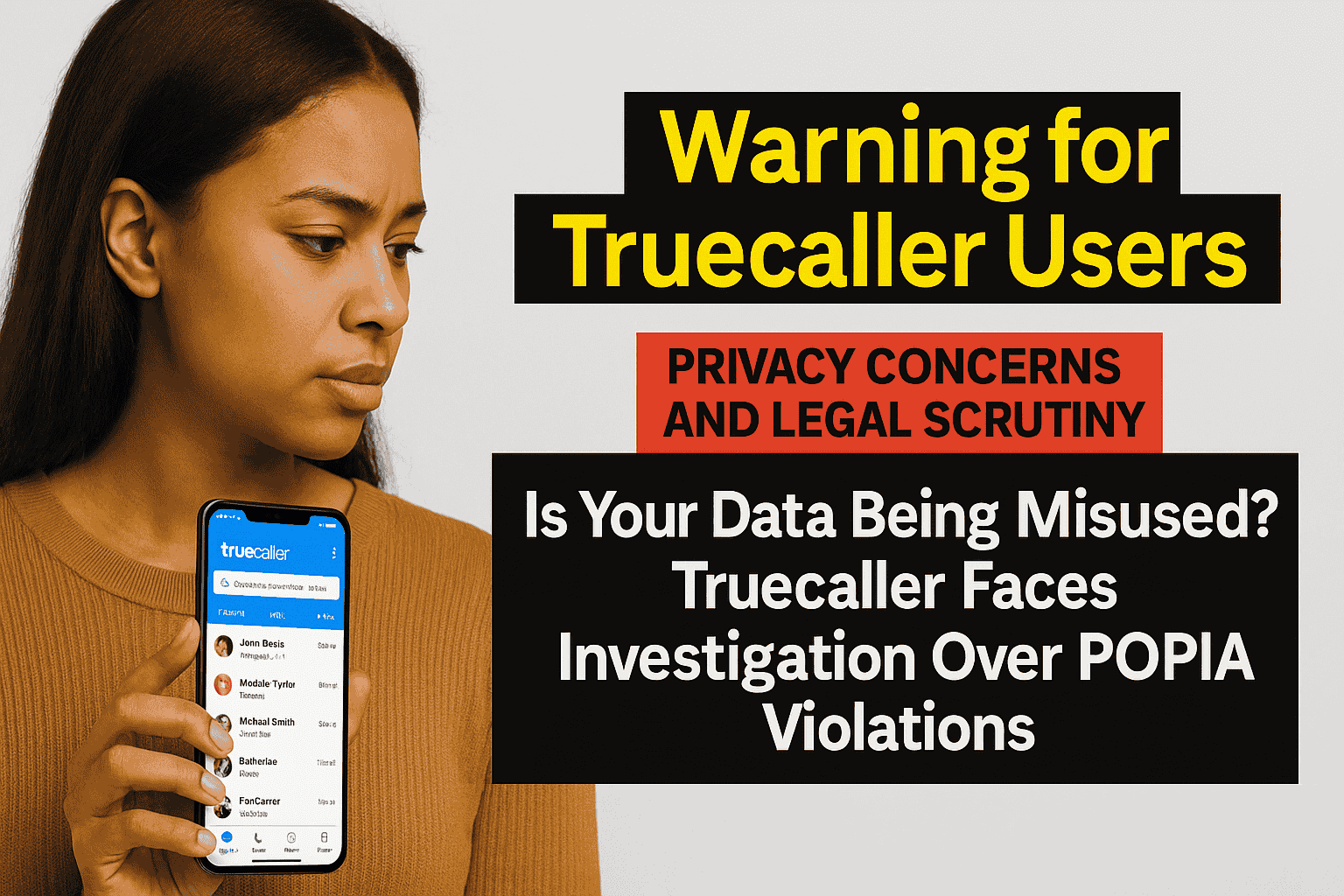
Introduction:
In recent times, a popular call-screening app has come under scrutiny for potentially violating personal privacy laws. Truecaller, a go-to solution for many who want to block spam calls, has been flagged for its crowdsourcing features that could be breaching privacy laws. These legal concerns have raised alarms for users who rely on the app to filter calls from unknown numbers, particularly when it comes to how their data is shared.
The Issue: How Truecaller Works and the Privacy Concerns
Truecaller has become a staple for millions worldwide, helping users identify unknown callers and block spam numbers. But the app works by crowd-sourcing data from its users’ address books and call logs, building a massive database of phone numbers. While this has helped millions of users avoid unwanted calls, it also raises significant privacy concerns, especially regarding the Protection of Personal Information Act (POPIA).
The app requests access to users’ contacts, which is then used to identify and label phone numbers. While Truecaller claims to operate within legal boundaries, the nature of how the app collects and shares this data has come under fire. Many legal experts argue that the crowdsourcing model could be a direct violation of privacy laws, as users may unknowingly share other people’s data without their consent.
Legal Scrutiny and the POPIA Violation
The Protection of Personal Information Act (POPIA) was designed to protect the personal information of individuals. Truecaller’s use of data shared by its users without direct consent from the people whose data is being used has led to legal concerns.
Truecaller’s terms and conditions require users to confirm that they have authorization to share their contacts’ information, but legal experts argue that this does not comply with the stringent consent requirements of privacy laws. Under POPIA, the responsibility of notifying individuals whose data is being collected lies with the service provider, in this case, Truecaller.
The app also faces accusations of charging businesses hefty fees to whitelist their numbers, which could be perceived as a manipulation of its database. These businesses have voiced concerns that the app could harm their reputation, especially when user-generated content flags their numbers as spam.
How Truecaller is Responding
Truecaller has responded to the accusations by stating that it allows users to unlist their numbers if they do not wish to be included in the app’s database. The company emphasizes that it aims to strike a balance between user safety and privacy by ensuring people have control over what information they share.
However, the app’s dependence on user-generated data has sparked concerns about how much control individuals truly have over their privacy, especially in cases where data sharing may not be fully transparent.
Conclusion
While Truecaller is a widely used app that helps individuals screen unwanted calls, it is essential for users to be aware of how their data may be shared and used. With growing legal scrutiny, it is important for the app and others like it to ensure they comply with privacy laws to protect users’ data and maintain trust. Users must remain vigilant and informed about the privacy implications of the apps they use daily.
Frequently Asked Questions (FAQs)
1. Is it safe to use Truecaller?
While Truecaller is safe for use in blocking spam calls, users should be mindful of how their personal data is shared. If you’re concerned about your privacy, consider reviewing the app’s privacy policy and settings.
2. How can I prevent my number from being listed on Truecaller?
Truecaller offers an option to unlist your number through their website or app settings. Make sure to check if your number is listed and take action if you prefer not to be included.
3. Does Truecaller violate privacy laws?
Truecaller is under investigation for potentially violating privacy laws like POPIA. Legal experts argue that the app’s crowdsourcing features may breach consent requirements.
4. How does Truecaller make money?
Truecaller generates revenue by offering businesses the opportunity to pay for whitelisting their numbers to ensure they aren’t flagged as spam.
Also Read: iPhone 17 Models Expected to Cost More Than iPhone 16 – What You Need to Know

